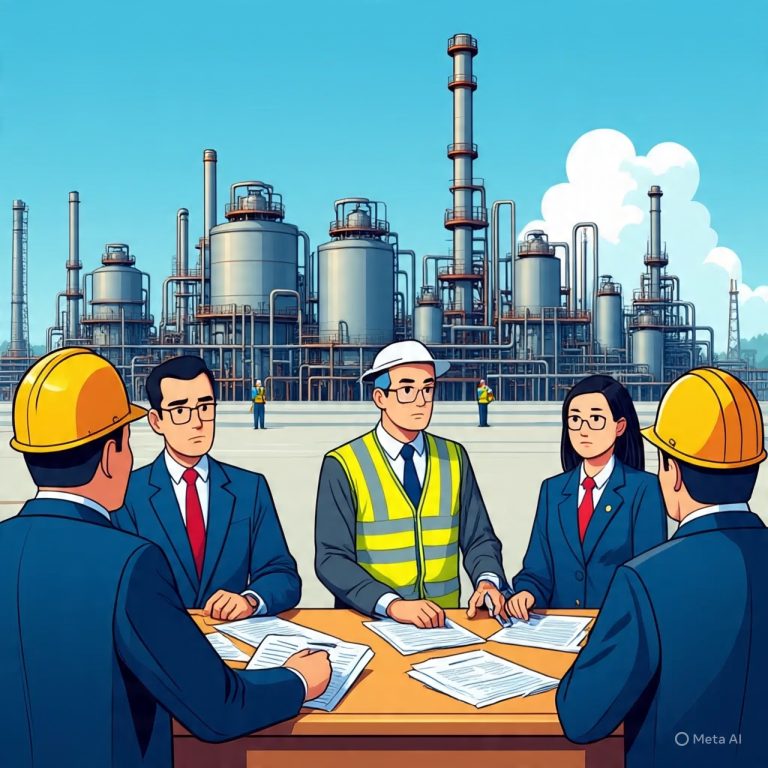
Rise of Populism
Why Populism is Gaining Popularity Around the World

Populism is becoming more popular around the world because many people feel ignored or left behind by traditional political leaders. In many countries, there’s a growing sense of frustration with the way things are run. People are struggling with economic issues, job losses, or rising living costs, and they don’t feel like their voices are being heard. Populist leaders often promise simple solutions to these complex problems, which makes them appealing to those who feel they’ve been forgotten.
These leaders tend to focus on “us vs. them” messaging, creating a sense of unity among their supporters by blaming certain groups or elites for the country’s problems. They also use social media to spread their message, reaching more people than ever before. As a result, populism is gaining ground because it speaks directly to people’s concerns and offers a feeling of hope or empowerment, even if the solutions aren’t always realistic.
How Leaders Are Using Populism to Win Voters’ Hearts

Leaders around the world are using populism to connect with voters in a powerful way. Populist leaders often speak directly to the people, promising to fight for the “common man” against elites, big corporations, and the establishment. By focusing on issues that matter most to everyday citizens, such as jobs, healthcare, and immigration, they can build trust and create a sense of unity among their supporters.
These leaders often use strong, simple language that resonates with people’s frustrations and desires for change. They promise to return power to the people, making their voices heard in the political system. Social media has made it easier for them to spread their message quickly, bypassing traditional news outlets and reaching voters directly. This creates a strong sense of connection between the leader and their supporters, which helps them gain more followers and win elections. Populism, in this way, becomes a tool for leaders to appeal to people’s emotions and needs.
The Role of Social Media in Fueling Populist Movements

Social media plays a big role in fueling populist movements around the world. It allows leaders to directly connect with their supporters, bypassing traditional media. This makes their messages more personal and immediate. Populist leaders often use social media to spread simple, catchy messages that resonate with people’s emotions, especially their frustrations and fears. These messages can quickly go viral, reaching millions in a short time.
Platforms like Twitter, Facebook, and Instagram let populist figures create a strong presence and build a loyal following. They often use these platforms to attack opponents, spread conspiracy theories, or rally people around a cause. The quick spread of information (or misinformation) online can also make it harder for facts to keep up with the fast-moving narrative. This creates a political environment where emotion and outrage can outweigh thoughtful debate, helping populist movements grow even stronger.
Is Populism the Answer to People’s Frustrations?

Populism has become a popular answer to people’s frustrations, especially in countries facing economic struggles or political instability. Many people feel ignored by traditional politicians, and populist leaders often promise to give them a voice. They claim to represent “the common people” and criticize elites who they say are out of touch with ordinary citizens. Populist movements often focus on issues like unemployment, rising costs of living, and the loss of national identity.
However, while populism might feel like a quick fix for people’s frustrations, it’s not always the long-term solution. Populist leaders can sometimes offer unrealistic promises or create division among different groups. While they might highlight real problems, their approach to solving them can sometimes make things worse. People may feel temporarily heard, but over time, the promises of populist movements may not deliver the change they expect.
The Influence of Economic Instability on Populist Growth

Economic instability plays a big role in the rise of populism. When people struggle with high unemployment, rising prices, and economic uncertainty, they can become frustrated with traditional political leaders who seem out of touch with their problems. Populist leaders often take advantage of this frustration by promising simple solutions and blaming certain groups—like elites, immigrants, or the media—for the country’s issues. These leaders position themselves as the voice of the “common people” who have been left behind by the political establishment.
In times of economic hardship, people are more likely to support populist movements that promise to bring change, even if those changes are drastic. Populist leaders often use emotional appeals to create a sense of “us vs. them,” which can unite followers and make them feel like they’re part of a movement that will fight for their interests. Economic instability, therefore, is a key factor in the growth of populist politics around the world.
Populism vs. Traditional Politics: What’s the Difference?

Populism and traditional politics have a big difference in how they connect with people and handle issues. Traditional politics often involves established political parties and leaders who follow long-standing systems, focusing on policies based on expert advice and compromise. These leaders work with other politicians, and their decisions are usually influenced by a wide range of opinions.
On the other hand, populism focuses on appealing directly to ordinary people, often by emphasizing their concerns about elites or the “establishment.” Populist leaders claim they represent the voice of the common person, often promising simple solutions to complex problems. They tend to focus on divisive issues and often challenge traditional political systems.
While traditional politics values negotiation and collaboration, populism thrives on creating a sense of urgency and dissatisfaction, blaming others for society’s problems. In short, populism tends to be more confrontational and less focused on compromise than traditional politics.
How Populist Leaders Are Changing the Political Game

Populist leaders are changing the political game by focusing on what they claim to be the “will of the people,” often by appealing to ordinary citizens who feel left behind by the system. These leaders tend to speak directly to the frustrations and concerns of the public, using simple language and promises to make their lives better. They challenge traditional political elites, claiming that they are out of touch with the needs of the average person.
Populist leaders also use powerful tools like social media to connect with voters, bypassing the usual media channels and speaking directly to their audience. This helps them build strong, loyal followings and create a sense of unity among supporters. However, their approach can also lead to division, as they often target certain groups or blame others for society’s problems. Overall, populism is reshaping the way politics is done, making it more about personality and direct engagement than traditional policies and institutions.
The Impact of Populism on Global Unity and Cooperation

Populism is changing the way countries work together, and it’s having a big impact on global unity. Populist leaders often focus on national interests first, putting their own country’s needs above others. This can lead to tension between countries and less cooperation on global issues like climate change, trade, and security. Instead of working together, populist movements can make countries more isolated.
For example, populist leaders may pull their country out of international agreements or challenge global organizations like the United Nations. While they may argue that they’re protecting their citizens, this can weaken international partnerships and make it harder to solve problems that affect everyone, like pandemics or environmental disasters.
In the long run, this shift toward nationalism could reduce the ability of countries to unite on important issues. As populism grows, it could create more division in the world, making it harder to tackle global challenges as a united front.
Why Some People Love Populist Leaders and Others Don’t

Some people love populist leaders because they feel like these leaders truly understand their struggles. Populist leaders often speak directly to the public, using simple language that connects with everyday concerns, like jobs, security, and national pride. They promise to challenge the political elites and fight for ordinary citizens, which many find refreshing and empowering. Supporters believe that populist leaders are more authentic and in touch with real-world issues.
On the other hand, others don’t like populist leaders because they can seem divisive or overly simplistic. Critics argue that while populist leaders make bold promises, they often fail to deliver real change. Some also feel that these leaders stir up anger and distrust between different groups in society, creating tension instead of unity. The fear is that populism can encourage harmful nationalism and weaken democratic values, making it hard for the country to work together on long-term solutions.
What Happens When Populism Takes Over in Countries?

When populism takes over in a country, it often leads to big changes in how the government operates. Populist leaders usually focus on connecting directly with the people, claiming to represent the “ordinary” citizens against the “elite” or establishment. While this can make people feel heard, it sometimes means that decisions are made without much input from experts or other political groups.
In many cases, populist leaders push for quick, bold policies to address people’s concerns, like reducing immigration or changing the economy. But these policies can sometimes cause division, making it harder for different groups in society to work together.
Populism can also weaken democratic institutions, as populist leaders might challenge the media, courts, or opposition groups, claiming they are not on the people’s side. This can lead to a more polarized society, where people are divided between those who support the populist leader and those who disagree with them.



